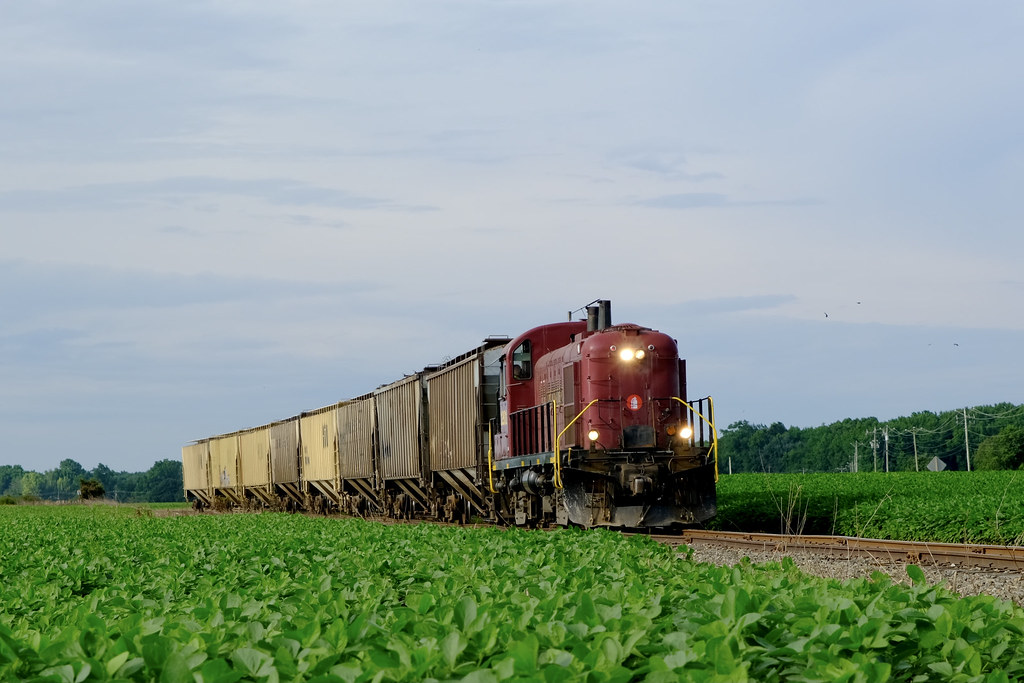I live in Spokane Washington and can access a rail that they call the funnel I believe. This route is 70 miles long and has close to 50 + trains a day. I love going to a town in Idaho called Sanpoint where there is a 7000 ft crossing over lake Pend Oreille there is a constant movement of trains. This is one of the busiest rail routs in pacific northwest. After viewing some of the rail fanning pictures I thought this would be something to get involved with . Any suggestions on how to's would be much appreciated. Also just to add This is a BNSF Northern Transcom route.
There was a feature on Sandpoint in the 2010 Locomotive special edition that Trains put out, they might have some location-specific info. For The Funnel, there's so many trains you probably don't need to worry about finding out when stuff runs. If you're a retiree who has the time to spend a few hours each day, I'd start by just sitting down by the tracks and making a note of what trains go by. With enough visits, you can start to get a feel for when certain trains may show up, and what train they are; for example, after about a year on the Fort Wayne Line, I could identify the local freight runs by their locomotive type and the cars they usually hauled (coils, a few reefers, gons, and some coal hoppers). A tool that may help in train identification (and giving heads-up, sometimes) is a scanner radio; you can tune in to railroad channels and hear the engineer calling signal indications at certain mileposts and getting permission to depart (on some lines), they'll often mention a symbol. I use a Baofeng UV-82HP with a standard antenna, which can pick up conversations about 5 air miles away depending on weather conditions.
There are also public symbol Wikis online (e.g. http://railroadfan.com/wiki/in...p/BNSF_Train_Symbols), but like any Wiki, the information can be outdated or not accurate.
To get a better idea of typical train symbols, and to hear about special runs or units, I usually join a Facebook group, and there are also Messenger and Discord groups. These are usually line or region-specific, I imagine there's at least one covering the Funnel. People living up and down the line will provide reports when they see trains, and occasionally railroad employees provide advance notice of trains on their way.
A word to the wise; railfans in these groups can be very picky about formatting of heads-up, and often get irritated if there's too many requests for updates or information; i.e., they can be nerdy cranks (I've gone off on one or two people, and have a feud going on at the moment; I'm not proud of either of these things). Read any pinned posts or announcements when you join, and have thick skin.
Finally, if you're interested in specific railroads or operations, often a good way to get info is reach out to a person who's posted photos that you've admired. Occasionally, they'll be willing to provide you information or meet up to chase a train with you. Case in point; if you ever find yourself on Maryland's Eastern Shore on a Friday, reach out to me, I'm happy to show you around the Maryland & Delaware and Delmarva Central as long as you don't mind my Pittsburgh-born, DC-perfected aggressive driving.

As for cameras, I use a Fuji XT-4. But, what's more important than the camera body is you lens, using manual settings, and your editing. Shoot using all manually-defined settings like ISO, shutter speed, etc., have your camera output a RAW file if you can, and download a photo editor to adjust your colors, lighting, etc. after the shot. Also more important; lighting and location. Start by finding some spots where there's good lighting (on both the nose and sides for a given direction at a given time of day). Find a setting that intrigues you, and that you can use to help frame the train.





















































































